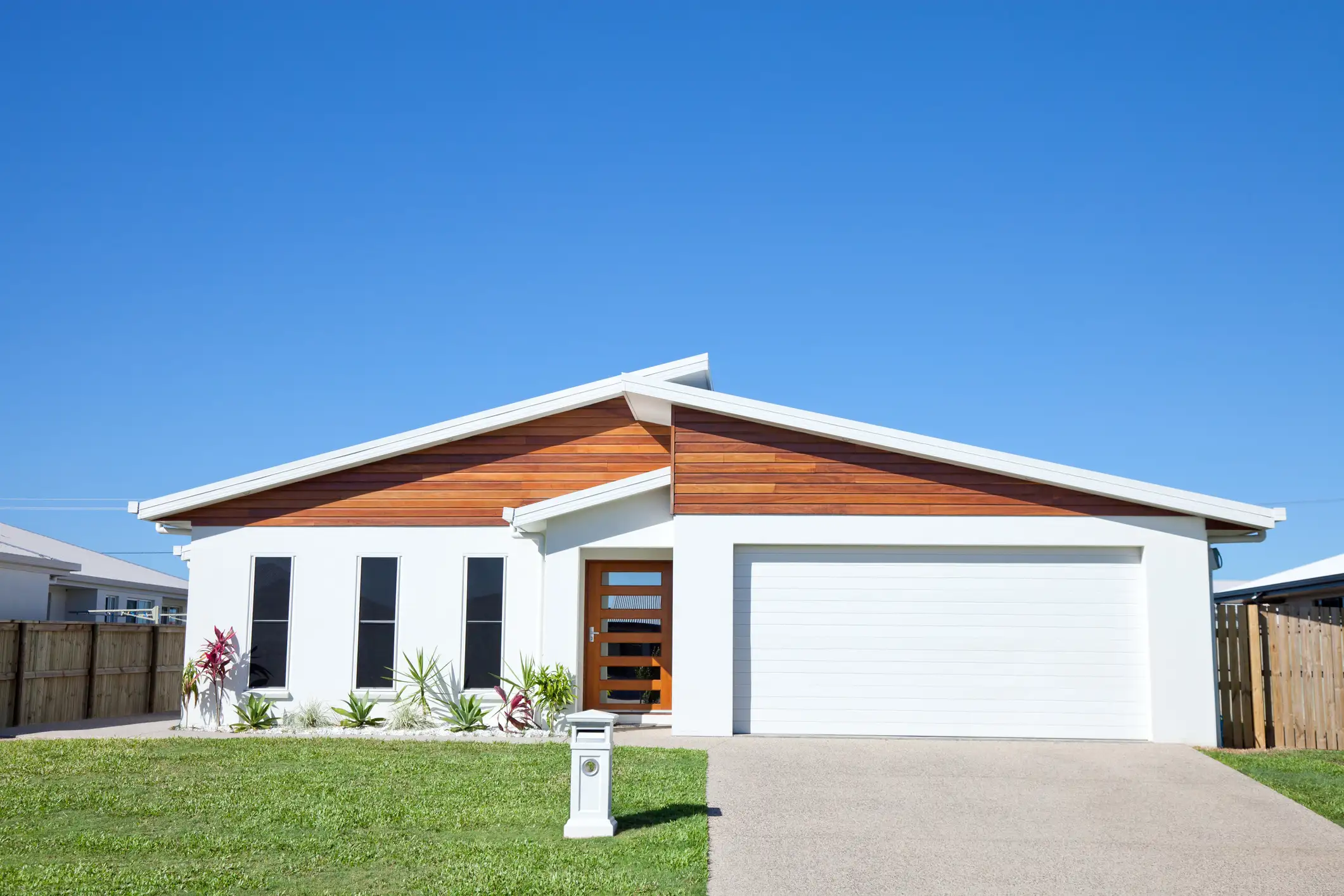What is the average cost to refinance a mortgage?
Let’s get right to the main question: how much does it cost to refinance a house?
Most homeowners will pay between 2% and 6% of their remaining loan balance. On a typical mortgage, that’s about $2,000 to $7,500 in closing costs. The exact amount depends on a few key factors, like your loan size, credit profile, income, location and the lender you choose.
Every lender has its own fee structure, and third-party costs can vary by state. And here’s the kicker: these costs are usually due at closing, on top of your regular monthly mortgage payment. Some lenders may offer options to roll them into your new loan, but they’re still part of the overall cost. These costs are typically due at closing, on top of your monthly mortgage payment.
Want a clearer picture of what it might cost you to refinance? Use our Mortgage Refinance Calculator to get a personalized estimate.
Breakdown of refinance costs
Refinancing your mortgage means replacing your current loan with a new one, and just like your original mortgage, it comes with a few upfront costs. Think of it as hitting the reset button—paperwork and all. Most refinance costs fall into three main buckets:
- Lender fees: These are the charges your lender collects for processing your new loan. Common examples include application fees, underwriting and loan origination fees.
- Third-party fees: These go to outside professionals who help move the process along, such as appraisers, credit report providers, title companies and notaries.
- Prepaid costs: This bucket includes property taxes, homeowner’s insurance and daily interest charges you pay up front to get everything squared away.
Some fees are standard, while others vary based on your lender, loan size or location. And here’s a pro tip: a few of them are negotiable. Knowing the average refinance fees helps you spot inflated costs, compare lender offers with confidence and make sure you’re getting the best deal possible.
Lender fees: origination, application & more
These are the fees charged directly by your lender—the cost of getting your new loan off the ground.
Here’s what’s typically included:
- Loan origination fee: This is the big one. It’s what your lender charges to evaluate and process your loan. Most fall between 0.5% and 1% of your total loan amount.
- Application fee: Some lenders charge a fee just to start the process of opening your file, pulling your credit and getting things underway for your refinance. This fee can range from $75 to $500, depending on the lender. Think of it as the “kickoff” fee that gets the whole process moving.
- Underwriting fee: This covers the cost of the underwriting team that reviews your financials and decides whether you qualify. It’s the engine behind the loan decision, and it typically ranges from $400 to $900.
These fees can vary a lot by lender, and some may even waive one or more, especially if you have great credit or bring a competing offer to the table. (Pro tip: it never hurts to ask.)
Typical lender fees
| Fee | Range | |
|---|---|---|
| Loan origination fee | 0.5%-1% of loan amount | |
| Application fee | $75-$500 | |
| Underwriting fee | $400-$900 |
Third-party fees: appraisal, title, credit check
Not all refinance costs come from your lender. Some fees go to outside professionals who handle key steps in the process. These third-party charges are typically passed on to you as part of your closing costs. Here’s a quick look at the most common ones:
- Appraisal: A licensed appraiser will estimate your home’s current market value, so the lender knows how much it’s worth. You can expect to pay $300 to $600.
- Title search and insurance: A title search confirms that you legally own your home and that there are no claims or liens on it. Title insurance protects the lender (and you) if a title issue pops up later. Typical costs range from $400 to $900.
- Credit report fee: This covers the cost of pulling your credit report during the application process. This usually runs between $25 and $50.
- Recording fees: These are charged by your local city or county to officially record your new mortgage in public records. The exact amount varies depending on your location.
PRO TIP
Ask for a refinance loan closing estimate early on. It will itemize both lender and third-party fees, making it easier to compare offers side by side.
Prepaid costs: taxes, interest & escrow
Prepaid costs are expenses you pay in advance to ensure your mortgage is set up smoothly from day one. These aren’t lender profit—they’re just part of managing your loan properly. Still, they do affect how much cash you’ll need at closing.
Here’s what to look for:
- Prepaid property taxes: Depending on your local tax schedule, you may need to pay a portion of your property taxes in advance to stay current.
- Prepaid interest: This covers the interest due between your closing date and your first mortgage payment. It helps bridge the gap so that your loan starts on the right schedule.
- Initial escrow contribution: If your lender manages your property taxes and insurance, which is common, you’ll likely need to make an initial deposit (usually a few months’ worth) into your new escrow account.
These amounts can vary by location and your closing date, but they’re an important part of your total refinance cost.
How much does it cost to refinance a $300,000 mortgage?
Still wondering what it all adds up to? Let’s look at a real-world example.
Says you’re refinancing a $300,000 mortgage. You have strong credit, and your fees are in the average range. In that case, your total closing costs might come out to around 2% of the loan amount—or $6,000. Here’s how that may break down:
| Fee Type | Estimated Cost | |
|---|---|---|
| Loan origination | $2,000 | |
| Application & Underwriting | $800 | |
| Appraisal | $400 | |
| Title & Recording Fees | $800 | |
| Credit Report | $30 | |
| Prepaid Taxes & Interest | $1,970 | |
| Estimated Total | $6,000 (2%) |
Keep in mind: This is just one scenario. Your actual costs might be higher or lower depending on your lender, where you live and how you structure your loan.


What is a cash-out refinance?
A cash-out refinance replaces your existing mortgage with a new, larger one and lets you take the difference in cash. It’s a way to tap into your home’s equity and use it for things like home renovations, debt consolidation or other major expenses. Your total loan balance goes up and you’ll still pay closing costs, but you walk away with cash in hand while keeping just one mortgage payment.
Can you refinance without closing costs?
If you remember one thing from this article, let it be this: you have options. Refinancing costs aren’t always set in stone, and with a few smart moves, you can significantly reduce what you pay at closing.
Here are some of the best ways to save:
- Shop around. Refinance fees and interest rates can vary a lot from one lender to the next. Get quotes from multiple lenders and be sure to forget to compare current mortgage rates before you start.
- Ask about lender incentives. Some lenders run promotions—like reduced fees, cashback at closing or discounted rates—to win your business. You won’t know unless you ask.
- Negotiate. See a charge that looks vague or high? Ask for a breakdown—or ask to have it removed. Lenders may be willing to match or beat competitor offers, especially if you have a Loan Estimate to show.
- Consider points and credits. Want a lower interest rate? You can pay discount points up front. Prefer lower out-of-pocket costs? Ask about lender credits, which reduce your closing costs in exchange for a slightly higher rate.
- Improve your credit score. Even a modest bump can unlock better rates and lower fees.
- Time it right. Mortgage rates fluctuate daily. If you're not in a rush, waiting for a rate drop could lead to big savings over the life of your loan.
PRO TIP
If you plan to refinance again or move within 5 years, paying higher upfront costs might not be worth it.
How to lower the cost to refinance
If you remember one thing from this article, let it be this: you have options. Refinancing costs aren’t always set in stone, and with a few smart moves, you can significantly reduce what you pay at closing.
Here are some of the best ways to save:
- Shop around. Refinance fees and interest rates can vary a lot from one lender to the next. Get quotes from multiple lenders and be sure to forget to compare current mortgage rates before you start.
- Ask about lender incentives. Some lenders run promotions—like reduced fees, cashback at closing or discounted rates—to win your business. You won’t know unless you ask.
- Negotiate. See a charge that looks vague or high? Ask for a breakdown—or ask to have it removed. Lenders may be willing to match or beat competitor offers, especially if you have a Loan Estimate to show.
- Consider points and credits. Want a lower interest rate? You can pay discount points up front. Prefer lower out-of-pocket costs? Ask about lender credits, which reduce your closing costs in exchange for a slightly higher rate.
- Improve your credit score. Even a modest bump can unlock better rates and lower fees.
- Time it right. Mortgage rates fluctuate daily. If you're not in a rush, waiting for a rate drop could lead to big savings over the life of your loan.







